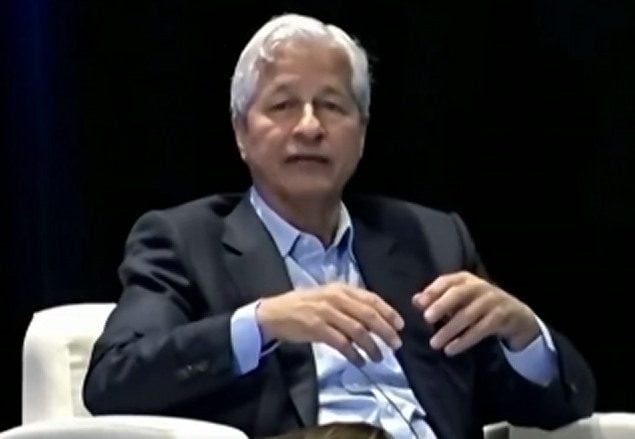
JP Morgan CEO Jamie Dimon suggests, in his annual letter to shareholders, that governments may need to seize private property to build wind and solar farms.
The letter reads:
The window for action to avert the costliest impacts of global climate change is closing. At the same time, the ongoing war in Ukraine is roiling trade relations across Europe and Asia and redefining the way countries and companies plan for energy security. The need to provide energy affordably and reliably for today, as well as make the necessary investments to decarbonize for tomorrow, underscores the inextricable links between economic growth, energy security and climate change. We need to do more, and we need to do so immediately.
To expedite progress, governments, businesses and non-governmental organizations need to align across a series of practical policy changes that comprehensively address fundamental issues that are holding us back. Massive global investment in clean energy technologies must be done and must continue to grow year-over-year.
At the same time, permitting reforms are desperately needed to allow investment to be done in any kind of timely way. We may even need to evoke eminent domain – we simply are not getting the adequate investments fast enough for grid, solar, wind and pipeline initiatives. Policies like the Bipartisan Infrastructure Law, the Creating Helpful Incentives to Produce Semiconductors (CHIPS) and Science Act, and the Inflation Reduction Act (IRA) — that hold the potential to unlock over $1 trillion in clean technology development — need to be implemented effectively. The upside is undeniable: Widespread investing across the private sector will aid domestic manufacturing, invigorate research and development in green innovation, help create resilient supply chains, lift up local economies and build the U.S. clean energy workforce by up to 9 million jobs over the next decade. While major advances have been made in the last few years on technology to help this cause, we are hopeful that the great American innovation machine (most advancements will ultimately come from the huge capabilities and capital of America’s largest companies) will find the additional technologies that are desperately needed. There is a downside – massive, inefficient and malinvestment of capital. I talk more about this in the last section on public policy.
Polarization, paralysis and basic lack of analysis cannot keep us from addressing one of the most complex challenges of our time. Diverse stakeholders need to come together, seeking the best answers through engagement around our common interest. Bolstering growth must go hand in hand with both securing an energy future and meeting science-based climate targets for future generations.
In January, The Gateway Pundit reported that the US Virgin Islands Attorney General, Denise George, who filed a lawsuit against JP Morgan over the Jeffrey Epstein sex trafficking scandal, was fired.
The lawsuit alleges the bank profited from Epstein’s sex trafficking scheme. It also accused JP Morgan of “turning a blind eye” to suspicious activity that occurred from Epstein’s account.
The post JP Morgan’s Jamie Dimon: “We May Need to Evoke Eminent Domain” to Seize Private Property to Build Wind and Solar Farms appeared first on The Gateway Pundit.
